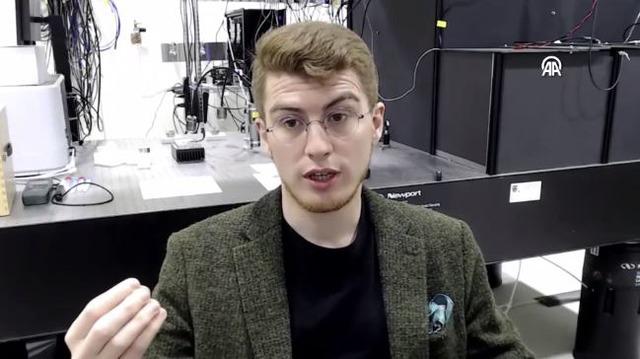The “Gertrude and Maurice Goldhaber” award of Harvard University Department of Physics, owned by Furkan Öztürk, is given every year to doctoral students who undertake a small number of outstanding research studies in experimental and theoretical fields.
CALLED “GROUNDBREAKING”
This study, the first of which was published by the young Turkish physicist last year, was described as “groundbreaking” by Nobel Prize-winning biochemist Jack Szostak, and it was reported by the scientific community that the discovery shed light on many mysteries, from how life began on Earth to life in space.
SCIENCE WAS SEARCHING FOR 175 YEARS
In 1848, French chemist Louis Pasteur put forward the concept of “homocrality”, which is that some molecules necessary for life exist in “mirror image forms” of each other, just like the left and right hands, but the origin of this feature was not understood. Öztürk created new excitement in the scientific world with his discovery that revealed this mystery that science has been pursuing in the 175 years since this development.
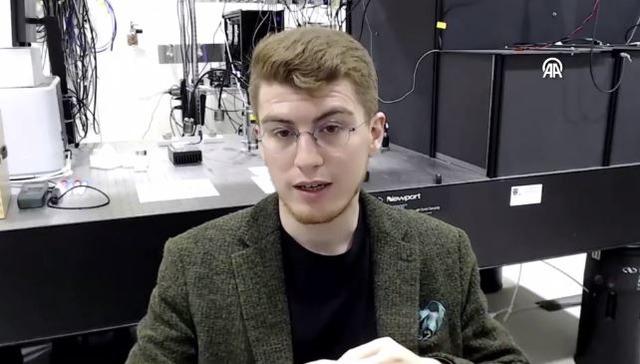
The discovery, which was published in the most prestigious science journals and announced to the scientific world, was also documented in the USA.
HE ANNOUNCES HIS WORKS TO THE WORLD
Turkish physicist Furkan Öztürk and scientists from Harvard University told the AA correspondent about the success story that brought the prestigious award of Harvard, which is at the top of the list of the best universities in the world.
Stating that he received very important feedback from both Turkish and world scientific circles after the discovery was published and reported by AA, Öztürk said that he continued to explain the results of his studies on important platforms.
“IT’S A VERY NICHE FIELD”
Stating that he was a guest researcher at the Weizmann Institute and Cambridge University, Öztürk explained that two new articles of which he was the first author were published in the light of the experiments he conducted there.
In his evaluation of the award, Öztürk said, “Since my research subject is interdisciplinary and a very niche field, it was not the result I expected.” said.
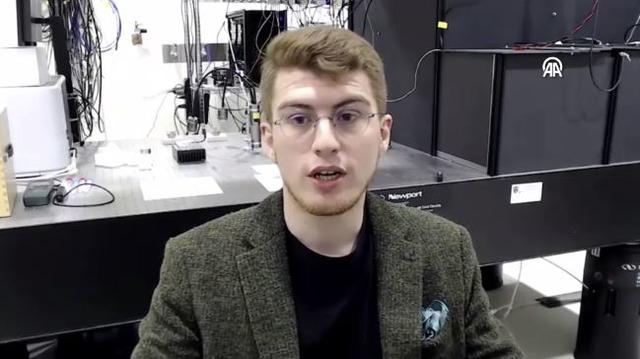
“I AM VERY HAPPY ON BEHALF OF MY COUNTRY”
Expressing that he thought that scientists working in more traditional fields of physics were not very interested in or even liked his work, Öztürk said, “That’s why I was quite surprised when I learned that I received the award. But of course, this is an excellent development, I am very proud of it, I am very happy for myself, my family and my country.” .” he said.
Emphasizing that the award will be very beneficial to the later stages of his career, Öztürk continued as follows:
“However, receiving such an award is the result of a difficult process and it might not have happened at all. The important thing is to enjoy doing this research and learning. I enjoyed this process very much during my work. Especially, an idea that I put forward theoretically was also worked experimentally, a creative way to solve an important problem.” “It is a source of happiness for me to bring solutions. I think of what I have created as a creative work and a forward-looking legacy. It is difficult to describe the feeling of satisfaction that comes from solving a deep problem.”
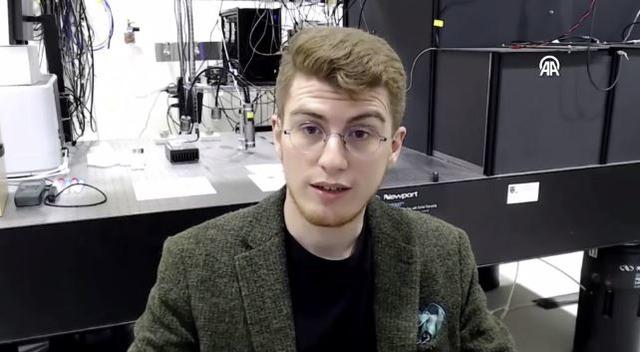
“I HOPE IT WILL MOTIVATE YOUTH IN TURKEY”
Stating that it is a pride to receive prestigious awards in the international community, but this should not be the goal, Öztürk emphasized that sometimes important studies are not immediately praised in the scientific world, and in such cases, the work should be continued due to the pleasure of discovery.
Expressing that he feels very lucky in this respect, Öztürk said, “I am happy to be able to experience both the pleasure of discovery and the happiness of being appreciated with the award. I hope the award will motivate young people who follow and constantly support me in Turkey and want to deal with science and art.” said.
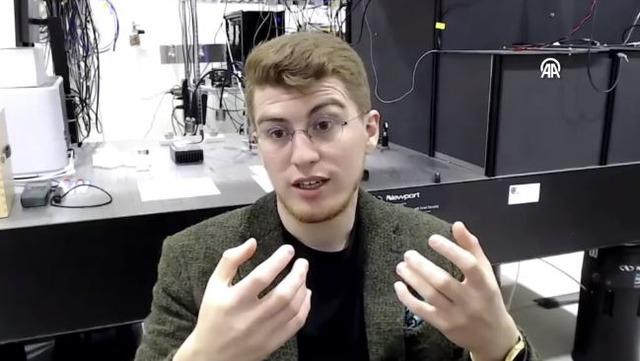
“I FAILED MANY TIMES”
Öztürk stated that his doctoral thesis advisor Dimitar Sasselov always supported him in generating new ideas.
Stating that his advisor, with whom he is a very good friend, offered great freedom to his students and supported them financially and morally during this difficult process, Öztürk explained the difficult processes that led to success with the following words:
“To be honest, I had a very difficult time in this process. I failed many times until I reached the final stage and showed that the ideas I produced worked experimentally. There were times when I took the wrong route, and sometimes the ideas that I put forward after long studies and that I was very confident in were not supported experimentally. However, at no time in this process I haven’t lost my motivation. This is the nature of doing research and I love what I do. If you really want to create a new work, it is not possible to predict what will work and how it will work. Unless you want to do an ordinary job, it is not possible. “You have to be ready for difficulties. I am grateful to Dimitar for always supporting me in this difficult and long journey.”
PROUD MAKING ‘MUSTAFA KEMAL ATATÜRK’ DETAIL
Furkan Öztürk also said that he kept in mind Mustafa Kemal Atatürk’s saying “Those who set out to never rest, never get tired” during his work.
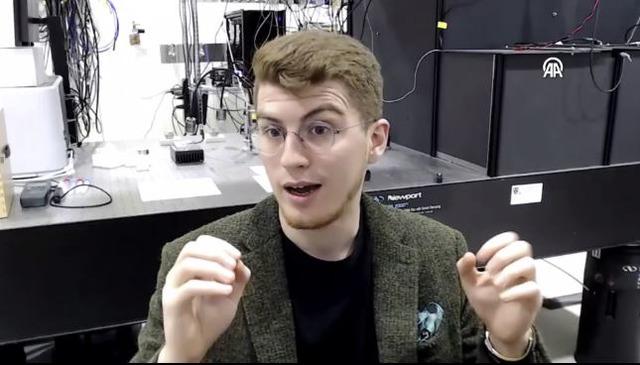
HE ANNOUNCED HIS BIGGEST DREAM
On the question of what other doors his discovery will open in the world of science in the future, Öztürk said that how life began on Earth is a very interesting and deep question.
Stating that his biggest dream is to understand how life emerged and which mechanisms played a role in this process, Öztürk explained that in order to achieve this, it is necessary to test the predicted chemical transformations in the laboratory under early world conditions.
Emphasizing that his discovery is an important step in understanding how life began, Öztürk said:
“Of course, this discovery also gives us various clues about life outside Earth. If we understand how life began on Earth, this understanding can help us when searching for life on other Earth-like planets and inform us about where to look. Especially understanding the mechanisms that give rise to life.” “My biggest dream is to study the physics of living systems. I believe that my studies will shed light on both our understanding of how life began on Earth and the search for life beyond Earth.”
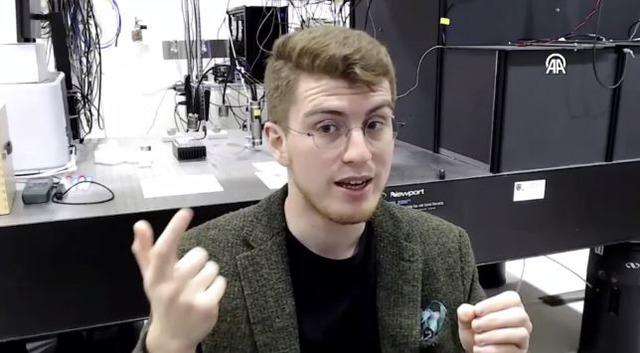
HE RECOMMENDED THE DOCUMENTARY
Öztürk stated that his work was the subject of a documentary film shot by the Dreyfus Association, which has a popular narrative, and said: “The documentary is offered to young people who are interested in physics.”
He suggested watching it at “.
Öztürk, who will receive his award at the ceremony to be held at Harvard University Physics Department on May 6, said, “After completing my doctorate in May, I want to head my own laboratory and continue my research on the physics of living systems and the origins of life.” said.
WORDS OF PRAISE FROM HARVARD PROFESSORS
Öztürk’s doctoral thesis advisor is Professor of Astronomy at Harvard University. Dr. Dimitar Sasselov said about his student, “Furkan is one of the most creative students I have seen in my 25-year career as a professor at Harvard. His creative intelligence and determination played a major role in the success of this study.” made his assessment.
Pointing out that the importance of the research is great, Sasselov said:
“Öztürk’s studies, for the first time in history, provide a complete recipe for how the basic building blocks that make up life are formed. These basic building blocks are, of course, amino acids and nucleotides. Thanks to the table that emerged as a result of these discoveries and the recipe that this table revealed, homochiral amino acids and nucleotides, “It has been shown how functional polymers such as proteins and RNA can form. Of course, this is not a recipe limited to Earth. We can imagine that this could happen on any planet with conditions similar to early Earth.”
HE WAS ONE OF THE FEW STUDENTS
Director of Graduate Studies, Department of Physics, Harvard University. Jacob Barandes also explained that the Goldhaber Award was given to a very small number of students who passed the proficiency exams in Harvard’s physics doctoral program and showed outstanding success in research.
Stating that the award winners are determined by the votes of the faculty members after extensive discussions and negotiations, Barandes said, “Winning the Goldhaber Award is an extremely special honor and the award winners receive their awards at a special ceremony held every year.” shared his knowledge.
Turkish physicist Öztürk will defend his doctoral thesis, which will include his studies on homochirality, at the end of this month and receive his doctorate from the Department of Physics at Harvard University.
